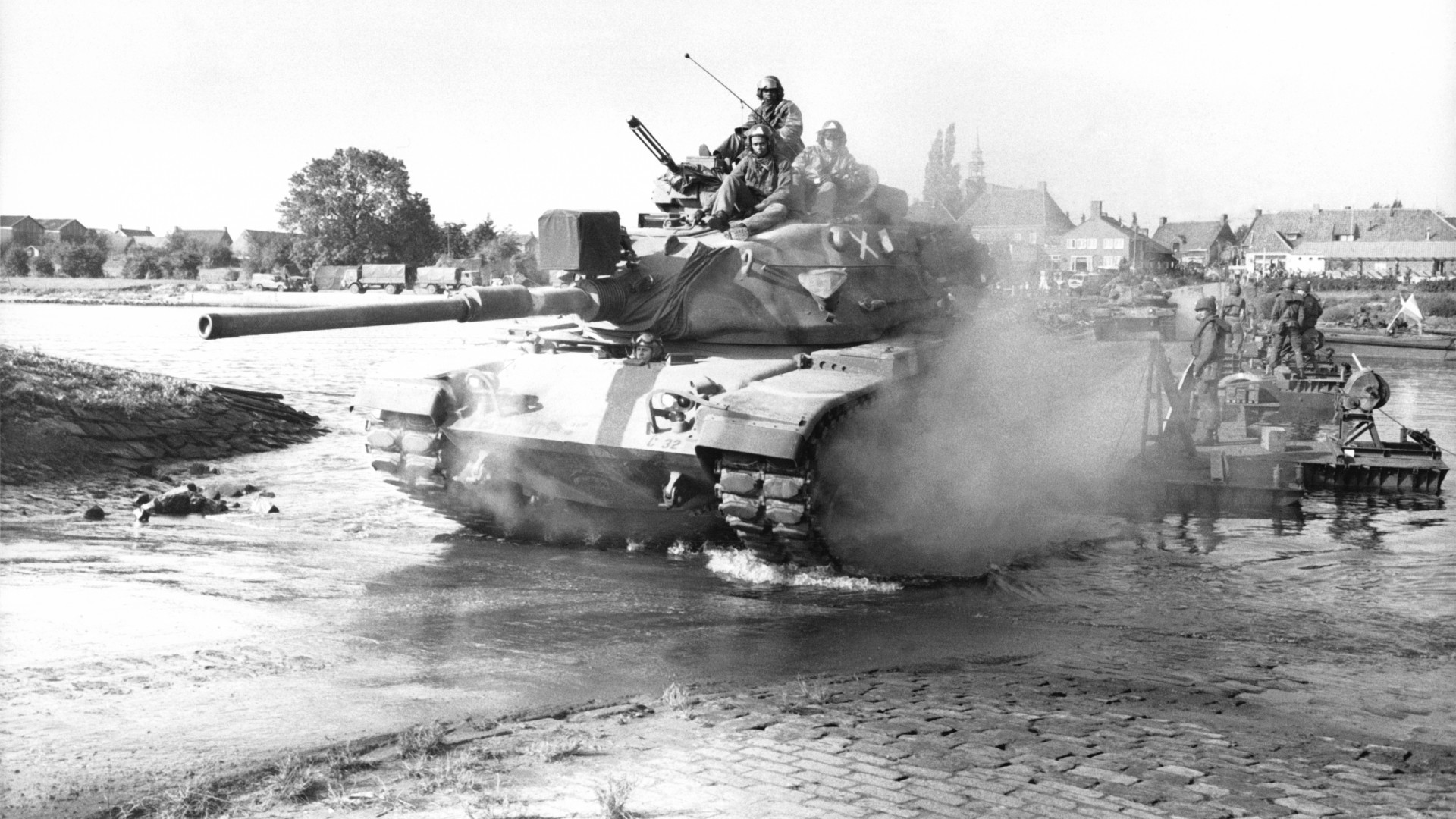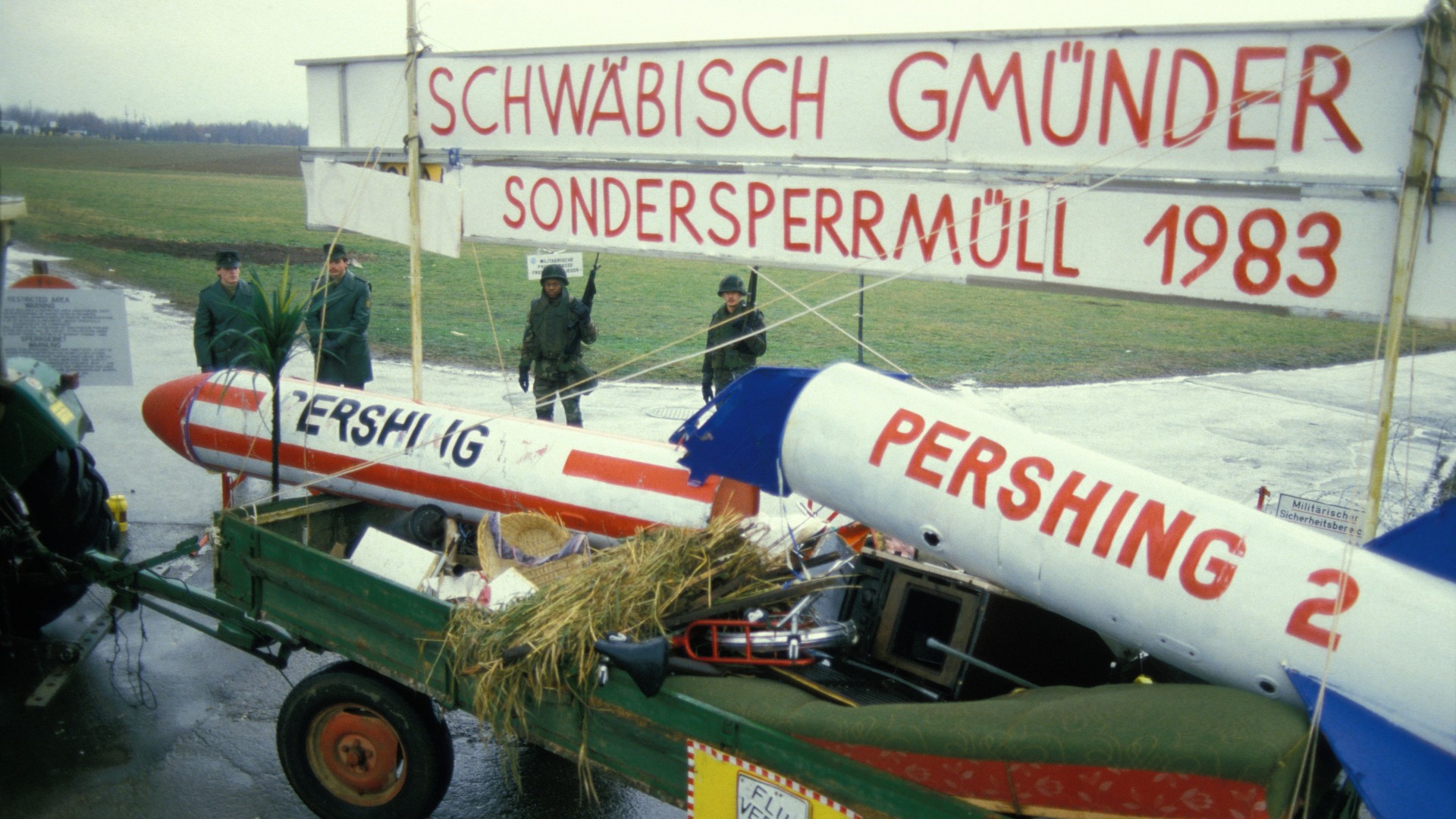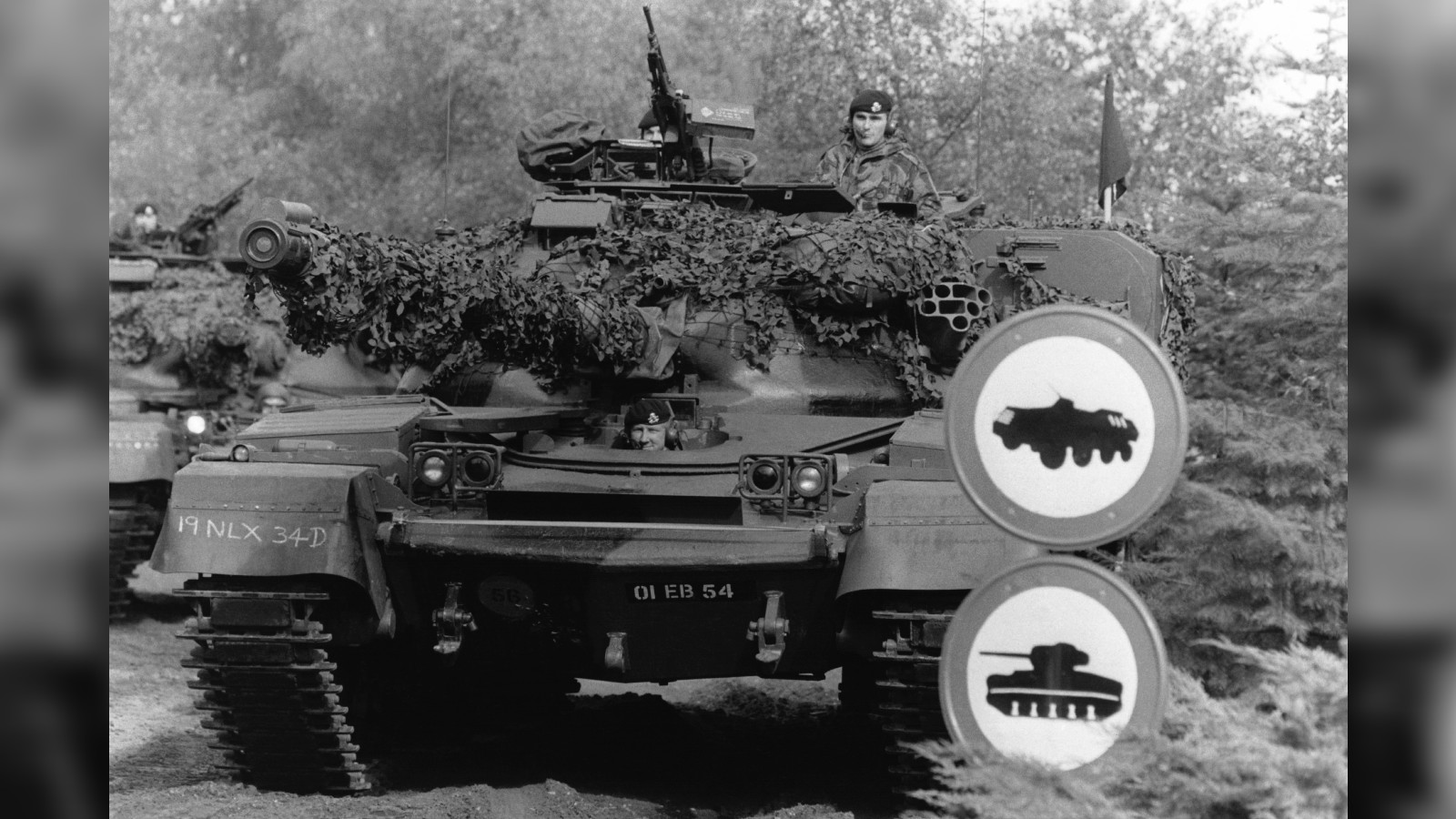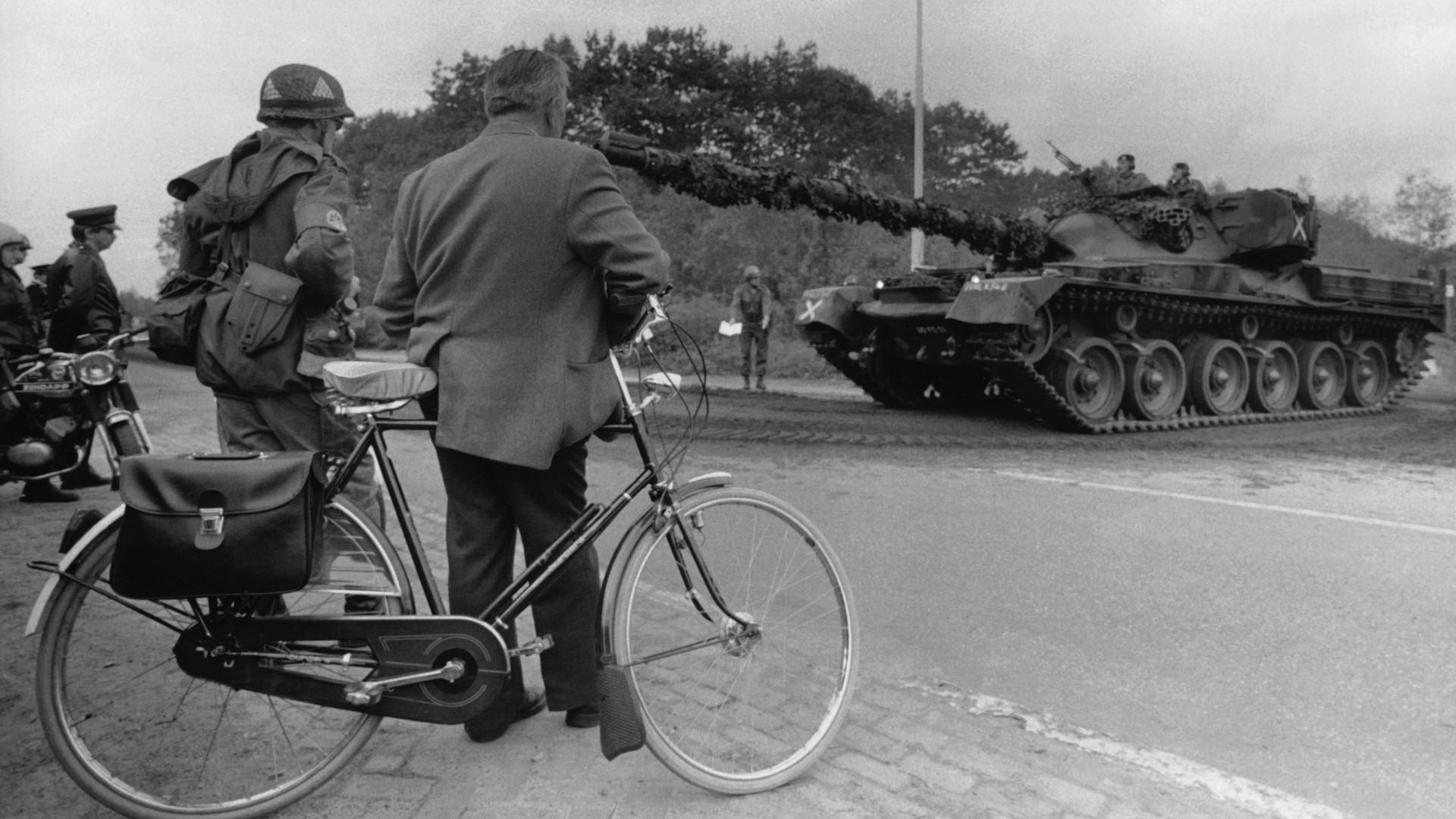Able Archer: The NATO exercise that almost went nuclear
Able Archer was a 1983 NATO military exercise that nearly triggered war with the Soviet Union

Get the world’s most fascinating discoveries delivered straight to your inbox.
You are now subscribed
Your newsletter sign-up was successful
Want to add more newsletters?

Delivered Daily
Daily Newsletter
Sign up for the latest discoveries, groundbreaking research and fascinating breakthroughs that impact you and the wider world direct to your inbox.

Once a week
Life's Little Mysteries
Feed your curiosity with an exclusive mystery every week, solved with science and delivered direct to your inbox before it's seen anywhere else.

Once a week
How It Works
Sign up to our free science & technology newsletter for your weekly fix of fascinating articles, quick quizzes, amazing images, and more

Delivered daily
Space.com Newsletter
Breaking space news, the latest updates on rocket launches, skywatching events and more!

Once a month
Watch This Space
Sign up to our monthly entertainment newsletter to keep up with all our coverage of the latest sci-fi and space movies, tv shows, games and books.

Once a week
Night Sky This Week
Discover this week's must-see night sky events, moon phases, and stunning astrophotos. Sign up for our skywatching newsletter and explore the universe with us!
Join the club
Get full access to premium articles, exclusive features and a growing list of member rewards.
Able Archer was an annual NATO military exercise that involved thousands of military personnel and equipment. The goal of the exercise was to simulate an escalation in a conflict between NATO countries and the USSR, culminating in a co-ordinated nuclear attack.
In 1983, the annual exercise almost triggered the outbreak of war between NATO and the Soviet Union, when miscommunication led the Soviet government to believe the West was in fact mounting an invasion.
What was Able Archer?
Able Archer, was an annual NATO exercise and the culmination the culmination of the Autumn Forger maneuvers that involved 100,000 personnel, some 16,000 of which were flown in from the United States according to The Atomic Heritage Foundation. The exercise was designed to end with a simulated nuclear strike following a theoretical Warsaw Pact invasion of Western Europe.
Related: The first atomic bombs: Hiroshima and Nagasaki
Although the Soviet Union was aware that the annual event was due to take place, in 1983 Able Archer differed in many ways from previous exercises.
First, there were large periods of radio silence, as well as encrypted messages among the NATO forces.
Second, the imaginary forces were moved to high alert and there were even reports of fake missiles being taxied out of hangers with dummy warheads.
Get the world’s most fascinating discoveries delivered straight to your inbox.
Finally, senior officials were involved with even President Ronald Reagan himself scheduled to participate, although in reality he dropped out, according to the BBC.

In the buildup to the 1983 Able Archer exercise the Warsaw Pact countries had become increasingly paranoid about the potential of a U.S. nuclear attack.
In 1981 Ronald Reagan became the 40th President of the United States and quickly proved himself aggressive in his approach towards the USSR. In March 1983, just a few short months before Able Archer, Reagan referred to the Soviet Union as an "evil empire", according to Voices of Democracy and announced his intent to build the "Star Wars" space-based anti-missile program, according to the Atomic Heritage Foundation.
That same year, the U.S. deployed Pershing II Nuclear Missiles at their bases in West Germany, able to reach a Soviet target in less than 10 minutes, according to Missile Threat.
As a result of the this threat and the fear of a nuclear strike, the KGB created Project RYaN, which stood for "Raketno-Yadernoe Napadenie" — translated meaning "Nuclear Missile Attack" — according to the Wilson Center.
"The Soviet Intelligence community was still traumatized by its failure to anticipate the German attack in 1941 and was determined not to be taken by surprise again," Colonel Robert E Hamilton wrote in his article "Able Archer At 35: Lessons from the 1983 War Scare".
As well as using traditional intelligence methods, including human agents, RYaN also utilized computers in a bid to monitor indicators from both NATO and the United States that a nuclear attack was imminent.

On Sept. 26, the Soviet Early Warning Satellite System registered a warning that five American minuteman missiles were on their way to Russian soil, according to Stanford University. The warning was revealed to be a false alarm.
"1983 was a supremely dangerous year in which a series of events seriously raised the temperature between East and West," historian Taylor Downing told All About History Magazine "Most obvious here was the shooting down of a Korean civilian airliner, flight KAL 007, by a Soviet fighter plane after it had strayed off course by about 350 miles and ended up crossing Soviet airspace above a sensitive military area.
"Reagan could not believe this was a case of mistaken identity, a tragic accident that caused the death of 269 innocent people, " Downing continued. "He called the Soviet Union "a terrorist state" that showed no regard for human life. I argue that at this point the Cold War nearly went hot as some in Washington demanded a military retaliation against the Soviet Union."
As tensions between the two sides began to rise, so did the danger of a possible nuclear conflict. According to the strategy of Mutually Assured Destruction, if this occurred then both sides would annihilate each other.
"When situations are this tense it is always possible that one side will misinterpret what the other side is doing," Downing said. "In the end, the safety of all nuclear systems is reliant upon the human factor — it is a politician or military leader who finally has to respond to threats perceived or real and press the nuclear button. So, no matter how sophisticated the failsafe systems are, it is down to a person to make the final decision — and all humans are fallible."
What happened?
When the Able Archer exercise began on Nov. 7, 1983, the Soviet response was unprecedented.
Almost immediately all flight operations that were not intelligence gathering in nature were suspended and nuclear weapons were taken to their intended delivery units.
For the entire duration of Able Archer, aircraft in Poland and East Germany, both Soviet republics at this time, were kept armed and fueled, according to Colonel Colonel Hamilton.
Perhaps most disturbingly, a 30-minute readiness time for a full nuclear strike was imposed, which would remain on alert until the end of Able Archer, on the Nov. 11, according to the National Security Archive.

It would be some time before the extent of the Soviet war scare would become apparent to U.S. Intelligence officers. Despite defector Oleg Gordievsky informing both MI6 and the C.I.A., it was only the former who believed him.After being briefed, Margaret Thatcher ordered her officials to "urgently consider how to approach the Americans on the question of possible Soviet misapprehensions about a surprise Nato attack," according to Unredacted.
In 1990 the President’s Foreign Advisory Board crafted a top secret report entitled "The Soviet War Scare" which makes clear the threat posed by Able Archer, stating that the US "may have inadvertently placed our relations with the Soviet Union on a hair trigger."
General Yesin, an operator of SS-20 missiles targeted at Western Europe, stated years later that: "We knew that NATO was doing an exercise although we couldn’t fully eliminate the possibility that a nuclear strike could be delivered," Gordon Barrass reported in a 2016 article for Taylor Francis Online.
Additional Resources
The Atomic Heritage Foundation contains a lengthy article on Able Archer 83 which details just hot close the world came to nuclear war. The Reagan Foundation has uploaded the entirety of the 'Evil Empire' speech and this can be viewed on YouTube. Colonel Robert E Hamilton's paper on Able Archer can be read on the Foreign Policy Research Institutes site.
Bibliography
- Atomic Heritage Foundation
- Apocalypse Averted - Slate
- The War Game that could have ended in the end of the world - BBC
- National Security Archive
- Wilson Centre: Able Archer 83: The Secret History
- The War Scare That Wasn't - MT Press Direct
- Wilson Centre: Forecasting Nuclear War
- Wilson Centre: Crying Wolf
- The Star Wars Speech - Air Force Magazine
- Pershing II - National Air and Space Museum
- FPRI: Able Archer at 35
- Nate Jones "Able Archer 83" (The New Press, 2017)
- Nate Jones "Countdown to Declassification" (Bulletin of the Atomic Scientists, Vol 69, Issues 6, 2013)
- Unredacted

Callum McKelvie is features editor for All About History Magazine. He has a both a Bachelor and Master's degree in History and Media History from Aberystwyth University. He was previously employed as an Editorial Assistant publishing digital versions of historical documents, working alongside museums and archives such as the British Library. He has also previously volunteered for The Soldiers of Gloucestershire Museum, Gloucester Archives and Gloucester Cathedral.
 Live Science Plus
Live Science Plus










